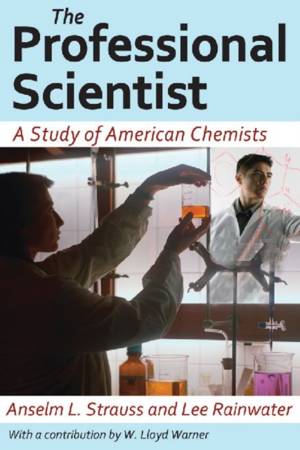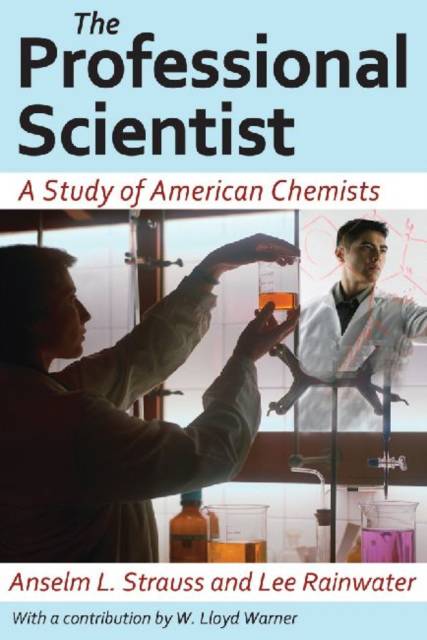
Bedankt voor het vertrouwen het afgelopen jaar! Om jou te bedanken bieden we GRATIS verzending (in België) aan op alles gedurende de hele maand januari.
- Afhalen na 1 uur in een winkel met voorraad
- In januari gratis thuislevering in België
- Ruim aanbod met 7 miljoen producten
Bedankt voor het vertrouwen het afgelopen jaar! Om jou te bedanken bieden we GRATIS verzending (in België) aan op alles gedurende de hele maand januari.
- Afhalen na 1 uur in een winkel met voorraad
- In januari gratis thuislevering in België
- Ruim aanbod met 7 miljoen producten
Zoeken
The Professional Scientist
A Study of American Chemists
Lee Rainwater, Anselm L Strauss
Paperback | Engels
€ 40,95
+ 81 punten
Omschrijving
This classic book, available in paperback for the first time, is based on a 1962 study of the American Chemical Society, one of the great U. S. scientific societies. The society has a membership educated in the fundamental scientific field of chemistry, whose knowledge and talents are essential to modem industrial civilization. Without chemistry, we would have neither automobiles, nuclear devices, nor all the varied products essential to our modern way of life.Chemists are caught up in the dynamic changes in our society. The explosive advance of scientific knowledge leads to increasing specialization until experts in one field may have little in common with those in another. Also, as the knowledge and skills of chemistry are incorporated in the workaday world of industry, more and more trained chemists spend their days in routine application and organization of their skills and knowledge.The unique element of this study is its assessment of the role and function of a professional society for its members. Not much is known of how professionals feel about their societies, what they expect of them, or how they function for their members.Such studies assume increasing importance as the trend toward professionalization incorporates more specialized skills and as the members of these professions look increasingly to their societies for assistance in establishing their rights and privileges vis-à-vis the rest of society. This remains a unique effort at professional ethnography.
Specificaties
Betrokkenen
- Auteur(s):
- Uitgeverij:
Inhoud
- Aantal bladzijden:
- 296
- Taal:
- Engels
Eigenschappen
- Productcode (EAN):
- 9781412818582
- Verschijningsdatum:
- 15/05/2011
- Uitvoering:
- Paperback
- Formaat:
- Trade paperback (VS)
- Afmetingen:
- 140 mm x 208 mm
- Gewicht:
- 294 g

Alleen bij Standaard Boekhandel
+ 81 punten op je klantenkaart van Standaard Boekhandel
Beoordelingen
We publiceren alleen reviews die voldoen aan de voorwaarden voor reviews. Bekijk onze voorwaarden voor reviews.









